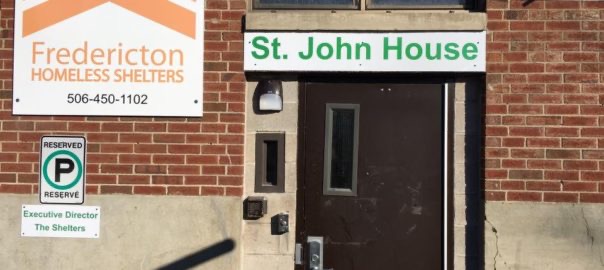The Fredericton Police Department (FPD) has recently announced that it will “track the reasons” why the cities houseless are sleeping in tents, rather than staying in shelters. The police’s involvement in this undertaking has not been well-received by either community members or academic experts.
Early in the month of February, Police Chief Martin Gaudet told the CBC: “It would be interesting to hear what [the reasons] are.”
“If, let’s say, we get the top five or top ten [reasons], in order to provide an ongoing dialogue with the government and other communities … Well, that is how you build a safety net. That is how you build services, right?”
The comment section of CBC New Brunswick’s (@cbcnewbrunswick) February 9th post on Instagram is filled with strong opinions on the matter. Ditch Witch Herbals (@ditch.witch.herbals) wrote: “Police do not need to be the ones collecting this data. Can they leave the unhoused alone already?”
Another user, Angela Saunier (@sailormoon_17) answered the police’s central question: “Ooh, I don’t know [why]… maybe because rent is [sic.] to [sic.] expensive, food, just living in general.”
The Brunswickan spoke with Dr. Julia Woodhall-Melnick, a Professor of Sociology at the University of New Brunswick’s Saint John Campus. Per her UNB profile, Woodhall-Melnick’s research is centred on “employment and housing as social determinants of physical and mental health, addiction, and well-being.”
“There are many reasons why homeless individuals may be living in tents,” explains Woodhall-Melnik, “the first big issue is that there isn’t affordable housing; the commodification of housing has led to many things, including rent evictions to increase the price of units. And, you know, we have low vacancy rates.”
“What you are seeing here is really a symptom of a larger structural issue of poor income redistribution in New Brunswick and in Canada in general, but especially in New Brunswick,” she continues.
Woodhall-Melnick emphasizes the nuances of experiences in shelters: “Reasons for people not wanting to attend shelters can vary by the type of shelter they are trying to access, by who is running the shelter, or if there are any requirements to enter it,” she stated.
Shelters are classified as dry, semi-dry, or wet. These classifications detail whether an individual can use substances on-site, or whether they have to be sober upon arrival. Some shelters do not allow the entrance of individuals who own pets, have a family, or are under the age of majority. All these factors play into the decision of living or not living in tents, even if shelters are available.
“Shelters are not a replacement for housing,” argues Woodhall-Melnick, “they are not always warm and cozy places where people feel safe.”
Woodhall-Melnick especially opposes the involvement of the cops in this undertaking: “Police are not trained researchers or lived experts. If [they] want to throw a data point on a map, fine. My question is: what are you doing with this map?”
She continues: “Why do we need this? Why do we need to track where people are at unless you’re giving this directly to service providers, health outreach workers, etc.”
“In terms of approaching folks living in encampments… In my opinion, if a police officer is randomly walking into an encampment and asking people why they live there, that can very much be seen as a violation of their rights.”
In the February 9 article, CBC also publicized the police’s map, depicting the tents’ location in Fredericton. Woodhall-Melnick looks at it with concern.
“It creates an element of NIMBYism in the community,” she states, “and it also takes away the element of privacy and safety that people might experience within their own camping communities.”




